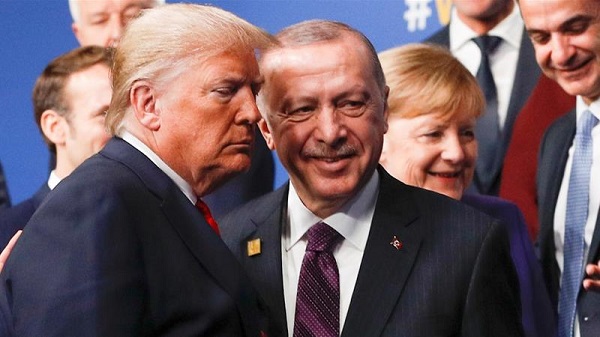Alwaght- Over the past few months, Turkey got involved in the Libyan crisis, starting wide-ranging moves in the Mediterranean Sea which are seen unprecedented in their kind.
The pretext for this activity was security and maritime pacts Ankara signed with Libya’s Government of National Accord (GNA) led by Prime Minister Fayez al-Sarraj late last year. The pacts allow Turkey to launch massive operations for oil and gas exploration and production in the Eastern Mediterranean.
The important point meanwhile is the severe objection by Greece which is raising its voice against the Turkish activities in the sea especially in islands in the vicinity of the Greek territorial waters.
In the new situation, the tensions between Ankara and Athens have elevated to new heights. Prime Minister Kyriakos Mitsotakis of Greece even warned the European Union about military clashes between the two countries if the conditions continue going towards further tensions.
The important point in the middle of the escalation between the two countries is the US entry to the dispute. It seems that Washington seeks crucial goals through its meddling. As the tensions between the two members of the NATO rose, the US announced it sent an aircraft carrier to the region to take part in military drills with Greece. At the same time, American troops operating in northern Syria conducted joint drills with the Kurdish People’s Protection Units (YPG) on July 25. These moves by the Americans certainly carry messages to Turkey and Europe.
The US efforts to expand anti-Chinese axis
In a significant move after tensions between Ankara and Athens escalated, Washington deployed to the Mediterranean the USS Dwight Eisenhower aircraft carrier along with 12 other warships. According to reports, the US personnel and equipment will join in the Greek Crete Island the drills with Greek air forces.
A question here is that are these US moves taken simply to confront Ankara and support Athens or they seek bigger goals?
The European countries object to President Erdogan’s expansionist policies in the region and outside it especially Libya. The situation went to a direction that now there is a serious confrontation of Erdoganism by the Europeans. Meanwhile, the US by sending its aircraft carrier to the Mediterranean sends a signal to Europe telling them that they have American support in the face of the Turkish policies. In other words, Washington is pursuing the strategy of preferring Europe over Turkey.
This US moves is coming while the tensions between the US and China have reached their summit particularly after coronavirus outbreak and Washington is seeking to build a big coalition covering as many countries as possible against Beijing.
So far, a majority of the European countries have remained hesitant about such an alliance due to their deep trade ties with China despite the heavy American pressures. In such an atmosphere, the US seeks to make the utmost use of the Turkish-European tensions, which recently led to French-Turkish forces encounter, to persuade the Europeans to join the anti-Chinese camp.
Clear US warning to Erdogan
In addition to involving the Europeans in the counter-China alliance, the US military drills with Greece and the Syrian Kurds carry a direct warning to the Turkish leader. The reality is that over the past years, the Washington-Ankara tensions reached their peak. Ankara repeatedly lashed out at the US for its West Asia policy in general and support for Kurdish militias in northern Syria in particular.
Now after highs and lows in the American-Turkish relations and while Turkey in addition to Syria is involved in the deepening Libyan crisis, Washington sends messages to Erdogan telling him that in no crises he is involved in the Americans will have his back.
Also, with their new measures, the Americans want to tell the Turkish leaders that they are not supporting them in the face of Europe. Deployment of a nuclear aircraft carrier brazenly tells Ankara that the US is not going to prefer it over the Europeans in the regional cases. The current trend also bears signs of further tensions between Ankara and Washington in the future.



























